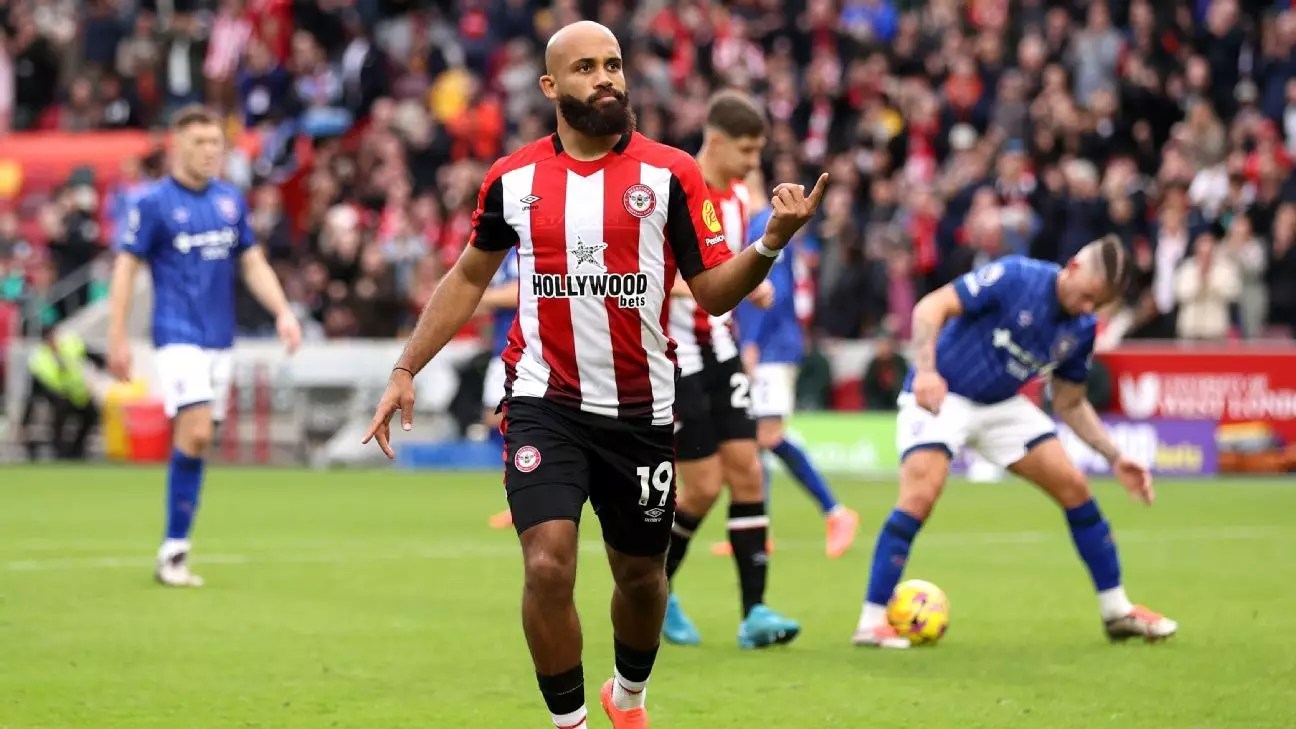Manchester United’s decision to acquire Bryan Mbeumo for over £70 million signals a pivotal shift in their transfer strategy—one that underscores their ambition to reclaim dominance in the Premier League. This signing isn’t just about acquiring a talented winger; it’s a statement of intent. At 25, Mbeumo combines experience with potential, having developed into a prolific goal scorer and assist provider during his tenure at Brentford. United’s willingness to pay a premium reflects their assessment of his rising star power and the strategic importance of bolstering their attacking options.
However, high-profile signings like Mbeumo often bring a debate about value versus volatility. Is this a calculated gamble grounded in his recent form, or an unnecessary financial gamble driven more by bidding wars and market frenzy? The fact that Brentford reportedly valued Mbeumo even higher than United paid suggests a complex negotiation process, revealing the intense competition among top European clubs. United’s willingness to meet such a hefty fee exemplifies their confidence that Mbeumo can thrive under greater pressure and in a bigger spotlight, but it also invites scrutiny over whether financial overreach might hinder their broader squad-building plans.
The Negotiation Battlefield: A Test of Resolve and Strategy
The transfer saga exposes the chaotic nature of modern football negotiations. United’s frustrations reflect an underlying tension—Brentford’s fluctuating valuation, their supposed attempts to leverage interest from rivals like Newcastle, Tottenham, Arsenal, and even Chelsea, and the strategic maneuvers to inflate personal terms to attract Mbeumo. These tactics highlight a broader issue: how clubs manipulate the transfer landscape, sometimes prioritizing short-term gains over the integrity of negotiations.
From Manchester United’s perspective, the deal demonstrates a mix of patience and frustration. They were committed to securing Mbeumo despite the hurdles, driven by the urgent need to reinforce their squad’s creativity and goal scoring. Yet, the perception that Brentford intentionally inflated costs and pressured Mbeumo suggested a negotiation that lacked transparency. Whether this was savvy business or a premeditated tactic to maximize profit remains open to debate. Either way, United’s decision to proceed reflects a bold willingness to pay a premium, trusting in Mbeumo’s ability to become a pivotal figure in their future plans.
Strategic Implications: Betting on Youth and Potential
United’s summer recruitment choices reveal a clear strategy: investing in young, high-potential players who can evolve under the club’s renewed vision. Signing Matheus Cunha and Mbeumo sends a message that Manchester United is building for the future, not just for immediate results. Mbeumo’s arrival, especially amid speculation about a possible debut during the U.S. preseason tour, indicates the club’s faith in his adaptability and talent.
There’s a layered significance to this move. United aims to blend experience with youthful energy, creating a dynamic attack adaptable to multiple tactical setups. The addition of Mbeumo is not merely about scoring goals—it’s about injecting speed, agility, and unpredictability that can challenge defenses and energize the squad. As Rashford’s future at United becomes increasingly linked to his time in Barcelona, the pressure mounts on Mbeumo to fill the technical and creative void. This transfer exemplifies United’s broader philosophy: targeting players who possess hidden potential that can be unlocked with the right environment and coaching.
In the grand scheme, whether this signing will pay dividends remains to be seen. But the boldness of the move underscores a renewed confidence at Old Trafford—a desire to return to excellence, even if that path involves significant financial risk and complex negotiations.


Leave a Reply